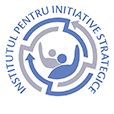#NEXT4EU: Results of the exchange visit of Moldovan civil society representatives to Berlin

During #NEXT4EU exchange visit, which took place during 11-13 June, Moldovan delegates spoke with members of the German Bundestag, German political foundations, Think Tanks, pro-European civil society organisations, as well as the Federal Foreign Office of Germany.
The EU officially started accession negotiations with Moldova and Ukraine on June 25. This step recognizes the progress made in several sectoral reforms, but the work towards EU membership is just starting.
Our meetings focused on preparations for EU accession negotiations and the challenges of successfully conducting and communicating the reform agenda. The discussions also covered the perspective of the younger generation and the pro-EU sentiment within the population, especially considering the upcoming presidential elections in October and the planned EU referendum.
What are the main challenges in the Republic of Moldova?
– A majority of the population supports Moldova’s EU integration process. However, the government needs to engage with the traditionally Russia-oriented population as well. The pro-Russian opposition might boycott the referendum to undermine the country’s pro-European course by exploiting low voter turnout. Key challenging regions include Gagauzia governed by a Bashkan controlled by the fugitive oligarch Ilan Shor and the Russian-influenced separatist region ofTransnistria, which recently requested “protection” from Russia in the face of “increasing pressure” from Moldova.
– The European path of the Republic of Moldova will be dependent on the pace of the EU reform agenda. The focus is on judicial reform and anti-corruption. Implementing measures like vetting judges and prosecutors is seen as crucial for enhancing the judiciary’s independence, professionalism, and transparency. The candidates who fail the vetting face being dismissed and barred from working in the judicial system for between five and seven years…
– One of the most pressing and persistent challenges for Moldova is Russia’s ongoing hybrid war, which includes disinformation and hybrid influence campaigns. Moldova’s neutrality is contentious, with the pro-Russian opposition spreading fake news claiming that the EU opposes Moldova’s neutrality.
During the #NEXT4EU Exchange Visit, German and Moldovan representatives discussed these challenges and explored potential solutions.
The exchange visit took place within the NEXT4EU project, organised by #IEP and its partners Institute for Strategic Inițiatives and Institute for European Policies and Reforms.









 Română
Română Русский
Русский